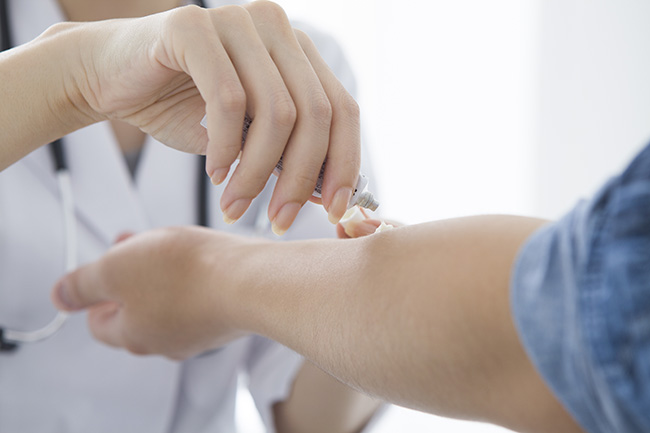Itchiness has been the most common and frustrating problem in uremic patients. About 60% of dialysis patients have itching problem. Current research shows that the causes of itch are numerous and complicated.
Causes
- Hyperparathyroidism.
- High levels of phosphorus and calcium in the blood; dry skin.
- Dialysis inadequacy related accumulation of uremic toxin.
- Anemia, iron deficiency.
- Sweat gland hypofunction.
- Side effects of medications and allergies, such as heparin, disinfecting agents and tape allergies.
- Allergy to artificial kidney disinfectant or material.

Treatment
- Adequate dialysis, increased blood flow, dialysis duration, and artificial kidney size.
- Low-phosphorus diets and phosphor-binding drugs are used to reduce blood phosphorus to improve itching, while active vitamin D can low down the levels of parathyroid hormone.
- The usage of erythropoietin has been shown to improve anemia, or itching.
- Don't take too hot showers; cotton clothing is recommended; apply moisturizer to keep skin moist.
- Improve itchy skin by taking or applying antipruritic drugs as prescribed by your doctor, or going to the dermatology clinic.
- Use a cold towel to wipe and cool the skin or take low-temperature dialysis.
- Change the type of heparin and review the suitability of artificial kidney or disinfectant (except peritoneal dialysis). In a few dialysis cases, itchy skin may be associated with allergies to the anticoagulant heparin, artificial kidney or disinfectant.

